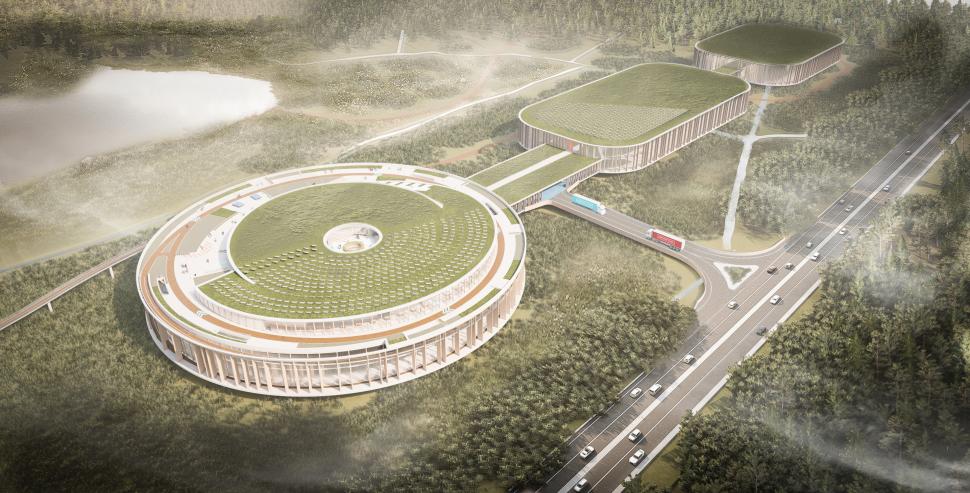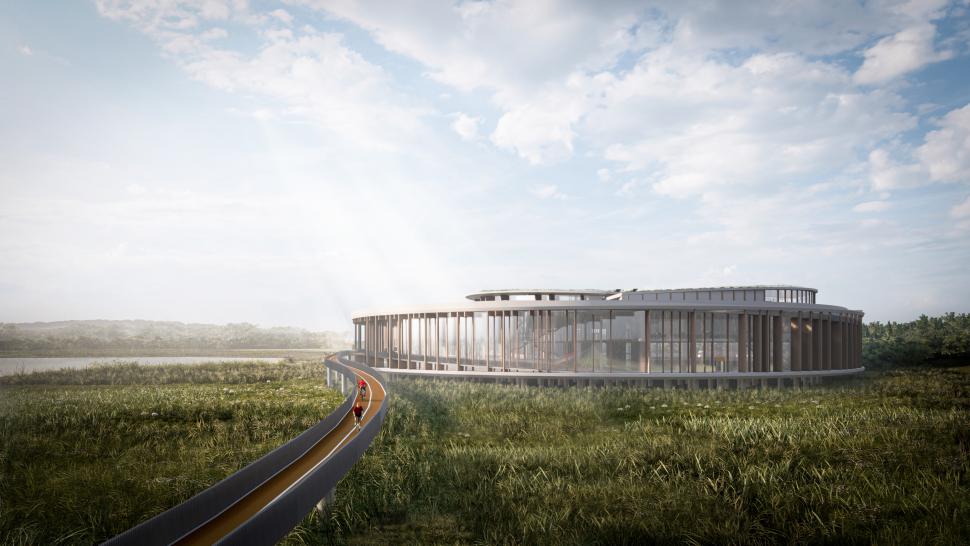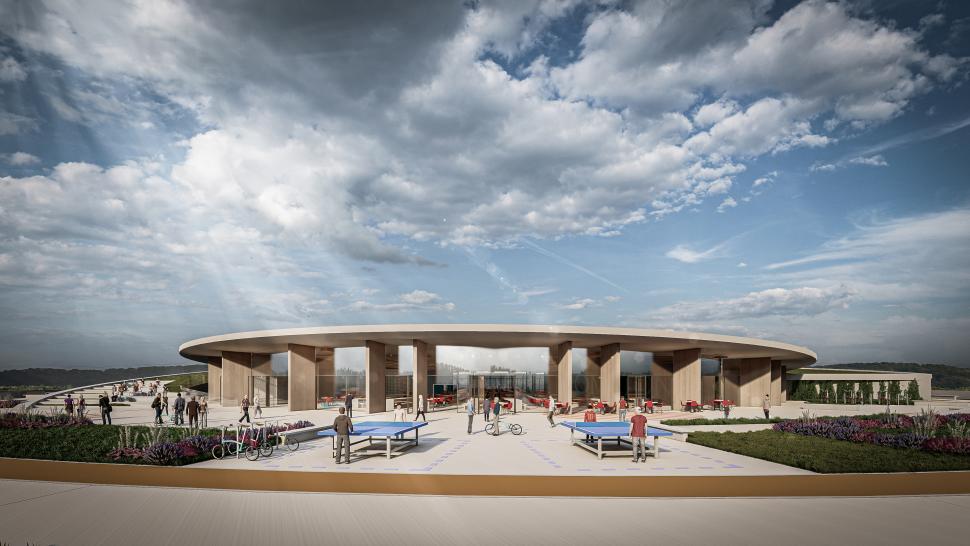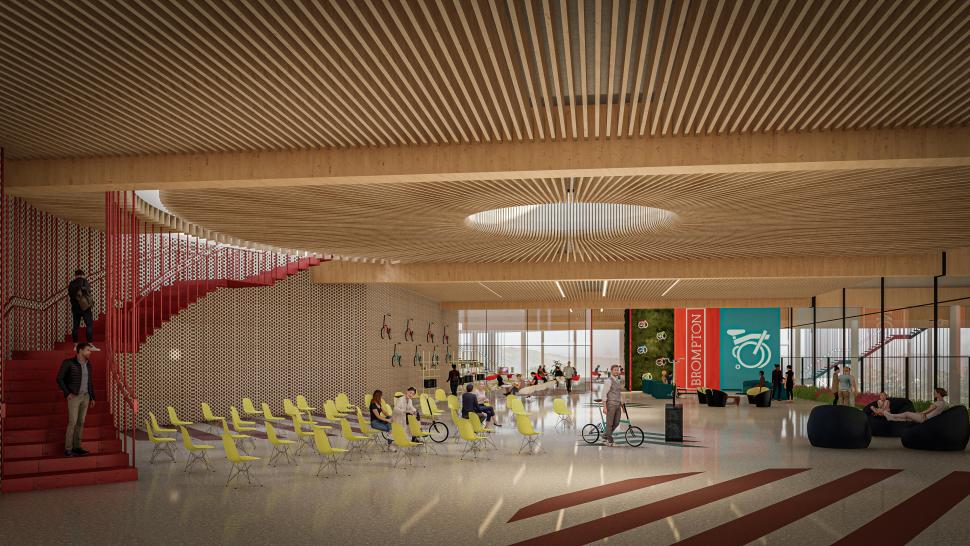- News
- Reviews
- Bikes
- Accessories
- Accessories - misc
- Computer mounts
- Bags
- Bar ends
- Bike bags & cases
- Bottle cages
- Bottles
- Cameras
- Car racks
- Child seats
- Computers
- Glasses
- GPS units
- Helmets
- Lights - front
- Lights - rear
- Lights - sets
- Locks
- Mirrors
- Mudguards
- Racks
- Pumps & CO2 inflators
- Puncture kits
- Reflectives
- Smart watches
- Stands and racks
- Trailers
- Clothing
- Components
- Bar tape & grips
- Bottom brackets
- Brake & gear cables
- Brake & STI levers
- Brake pads & spares
- Brakes
- Cassettes & freewheels
- Chains
- Chainsets & chainrings
- Derailleurs - front
- Derailleurs - rear
- Forks
- Gear levers & shifters
- Groupsets
- Handlebars & extensions
- Headsets
- Hubs
- Inner tubes
- Pedals
- Quick releases & skewers
- Saddles
- Seatposts
- Stems
- Wheels
- Tyres
- Health, fitness and nutrition
- Tools and workshop
- Miscellaneous
- Cross country mountain bikes
- Tubeless valves
- Buyers Guides
- Features
- Forum
- Recommends
- Podcast
 Brompton Ashford proposed factory (picture credit Hollaway Studios) 02.jpg
Brompton Ashford proposed factory (picture credit Hollaway Studios) 02.jpgBrompton bike factory approval a “dark day for nature”, says wildlife trust – while also slamming “puzzling” lack of car parking spaces
The decision this week to approve Brompton’s proposals for an ambitious new eco-friendly factory and headquarters in Kent have been criticised by wildlife campaigners, who say the plans will lead to the loss an “irreplaceable natural corridor” which acts as a “critical haven for a diverse array of wildlife”, branding the decision a “dark day for nature” – while also criticising the lack of car parking spaces on offer as “puzzling”.
However, the folding bike company says the unique stilt-based design of the £100m complex – which has already been delayed by two years due to the ongoing economic challenges facing both Brompton and the cycling industry in general – will allow for the creation of new wetland habitats underneath, while also mitigating flooding risks.
Earlier this week, members of Ashford Borough Council gave the go-ahead for the project, first announced in 2022, which will see Brompton move from its current factory in Greenford, west London, to a 100-acre floodplain in Ashford, where the local authority aims to create a 60-acre public nature reserve including a community cycle path.
Initially scheduled to open in 2027, the proposed state-of-the-art factory and headquarters, which would double Brompton’s manufacturing capacity to 200,000 bikes a year and create up to 4,000 jobs, is focused on sustainability and active travel, and will include paths specifically designed for cyclists and pedestrians which will lead directly into the facility.
Under the travel plan drawn up for the site, no new parking spaces will be also created. Staff and visitors will instead be encouraged to cycle, walk, or use public transport to reach the factory, which will also have a visitors’ centre, museum, and café.
However, despite the council’s approval on Wednesday, the plans still face an uncertain future, after Brompton revealed earlier this month that its pre-tax profits had plunged by over 99 per cent from £10.7m in 2023 to just £4,602 for the year ending March 2024.
Work is not scheduled to start for another two years, with chief executive Will Butler-Adams admitting that the plans are currently “on hold”, and that the company needs to be in a stronger financial position when construction begins after “investing through the downturn” experienced by the bike industry in recent years.
Meanwhile, the planning application is also now set to be sent to housing secretary Angela Rayner for further approval, after the Environment Agency objected to the proposals, which it says pose a flood and loss of habitat risk.
According to the agency, the proposed factory and headquarters, set to be built on a 100-acre Zone 3b floodplain, could be prone to flooding and lead to the loss of local wildlife. Flood Zone 3b refers to land known as a functional floodplain, where water from rivers or the sea has to flow or be stored during a flood.
Brompton’s HQ would therefore be at high risk of flooding due to its position next to the East Stour river, but the bike brand says the factory’s innovative design – which will see it built on stilts – will ensure flooding is avoided, while hydrological reports suggest the area can handle any expected flooding.
Nevertheless, while recommending the plans to the council, officers described the situation as “finely balanced” due to the proposed factory’s position in the floodplain, with the Environment Agency’s objections meaning that the application will need to be sent to Labour minister Rayner, who will decide whether the plans can be left in the hands of the local authority or considered by the government instead.
> Brompton CEO warns chancellor removing tariffs on Chinese bikes could "kill" folding bicycle brand
And now, along with the perceived flooding risk, the factory has come under fire from the Kent Wildlife Trust (KWT) this week, who claim Brompton’s proposed HQ will lead to the loss of wetland habitat, arguing that the “ecological treasure” faces “severe and irreversible harm”.
In a statement published following the council’s decision, the trust expressed “deep disappointment and serious concerns for wildlife” in the “ecologically significant area”, and even pointed the finger at Brompton’s recently reported financial woes and criticised other aspects of the proposal, including – somewhat bizarrely – the limited provision for car parking spaces in the plans.
“It’s a dark day for nature as Ashford Borough Council has approved plans for a bike factory on the precious South Willesborough Dykes Local Wildlife Site,” KWT’s planning and policy officer Emma Waller said this week.
“This wetland habitat, a vital part of the Ashford Green Corridor, is home to dormice, great crested newts, seven bat species, 32 breeding bird species, and 92 aquatic invertebrate species. It’s an ecological treasure now facing severe and irreversible harm.
“Despite its undeniable value, the voices of conservationists and the plight of wildlife were disregarded in favour of a development celebrated for job creation, even though the company behind it faces well-documented financial instability.
“Instead of addressing these concerns or the project’s questionable feasibility – highlighted by its puzzling provision of only 30 parking spaces, the media has largely ignored the devastating impact this decision will have on local biodiversity.”
She continued: “The planning process consistently downplayed the ecological importance of this habitat, disregarding its protection within Ashford's Local Plan, and the vital role it plays in supporting wildlife. Once again, nature has been sidelined, losing even the small spaces set aside for it in favour of human interests.
“This decision is not just disappointing – it’s a stark reminder of the ongoing battle for the future of our natural world. We will not stand idly by. We will continue to fight for wildlife, amplify its silent voice, and hold decision-makers accountable. If we don’t, who will?”
Brompton has pointed out in the past that the site is set to be entirely built on stilts, which the company claims will create opportunities for new wetland habitats beneath. However, the Kent Wildlife Trust has argued that “such measures cannot compensate for the loss of an irreplaceable natural corridor”.
Of course, as noted by the Kent Wildlife Trust, Brompton’s plans haven’t just been criticised for their apparent potential to lead to flooding and a loss of local wildlife – they’ve also been scrutinised for their lack of proposed parking spaces.
Last February, we reported that National Highways advised Ashford Borough Council to delay making a decision on the scheme – the fourth time since January 2023 that the approval process was postponed due to the traffic authority’s objections – due to concerns about the project’s impact on the local road network and the lack of any car parking facilities at the site.
Chief among National Highways’ concerns was the requirement for a more detailed traffic and transport assessment to be carried out, especially in relation to Brompton’s desire to not include any car parking spaces at its site.
Assessments carried out by Kent County Council’s highways department suggested that the brand should consider alternative options for those staff and visitors who “have no choice but to drive”.
This prompted Brompton to last year open discussions with HS1 Ltd, the owner of the multi-storey facility previously used by Eurostar passengers, and the nearby Ashford Designer Outlet to see if the company can share their car parks.
According to this plan, staff would be permitted to park their cars in the outlet’s south car park – located directly next door to Brompton’s proposed site – but on busy shopping days would instead be encouraged to park a mile away at the large multi-storey at Ashford International station, and walk or cycle the remaining distance to the factory.
National Highways later acknowledged Brompton’s willingness to put these contingency plans in place, but said, however, that “this matter will have a bearing on trip generation, since if employees can drive and can park, many may do so”.
In 2022, when the project was first announced, Butler-Adams said: “As we face climate change, combined with poor mental and physical health in our cities, where most of the world population live, we need to adapt.
“There has been a global realisation post-pandemic that we need to change how we live in our cities, to design them around the people that live in them, not the automobile. Brompton has a large part to play in supporting that transition, but we need to have more space to innovate and create the products of the future.
“London was the inspiration for the Brompton and our success is in large part is due to our diverse and skilled staff who continue to nurture and develop our company. By choosing Ashford we can retain this strong connection to London and the UK, whilst being on the doorstep of Europe.
“We have a long journey ahead with the planning and development of the new site, but we’re thankful for the support of Ashford Borough Council, Hollaway Studios, and Quinn Estates towards achieving our combined ambition to build this revolutionary and sustainable bicycle factory of the future.”
After obtaining a PhD, lecturing, and hosting a history podcast at Queen’s University Belfast, Ryan joined road.cc in December 2021 and since then has kept the site’s readers and listeners informed and enthralled (well at least occasionally) on news, the live blog, and the road.cc Podcast. After boarding a wrong bus at the world championships and ruining a good pair of jeans at the cyclocross, he now serves as road.cc’s senior news writer. Before his foray into cycling journalism, he wallowed in the equally pitiless world of academia, where he wrote a book about Victorian politics and droned on about cycling and bikes to classes of bored students (while taking every chance he could get to talk about cycling in print or on the radio). He can be found riding his bike very slowly around the narrow, scenic country lanes of Co. Down.
Latest Comments
- Destroyer666 6 min 22 sec ago
I am not sold on this - As mentioned, Sram has ok'd e.g. Pedro's chain checker which is more like a traditional tool. And those you can fit and get...
- chrisonabike 9 min 24 sec ago
Not my battle * (especially on a thread is about something else) - but ... I hear there is a tribe who ride distances on fixies. And presumably...
- Destroyer666 20 min 21 sec ago
??? The bell rings, it doesn't scream "I've an Airtag hidden inside me!". You really think bike thieves go around checking and removing bike bells,...
- chrisonabike 1 hour 32 min ago
Kei vehicles here. Europe already has microcars of course (in fact there's at least one place in the US where they have quite a few really micro...
- wtjs 3 hours 30 min ago
Let's hope that it makes other drivers think twice before attacking cyclists...
- wtjs 3 hours 47 min ago
You've missed the bit where it's going to court...
- brooksby 4 hours 54 sec ago
Don't worry, Gore: the Orange One will probably soon make the use, and possibly the consumption, of PFAS compulsory after he read this TikTok...
- wtjs 4 hours 24 min ago
Ashford only needs something to break down or a slight accident and you might as well forget it as it's gridlocked...
- Hirsute 5 hours 26 min ago
All sorts of people are subject to hatred and othering under the fascist, nazi regime of trump and musk. I'm sorry I did not give a exhaustive list.
- ChrisA 5 hours 31 min ago
Blade Mews is private, so you have to ask why the council thought it reasonable to (legally) restrict cycling on a public right of way, that...





Add new comment
13 comments
Aside from the environmental issues regarding the sensivity of the site or not, the argument for the need to build a new factory to build 200,000 bikes a year seems a long reach. Brompton sales collapsed last year, so the need for 200,000 new Bromptons every year seems misjudged, even if they can make them. WBA blaming the general malaise in the worldwide bicycle market appears classic deckchair rearranging for a board of rattled investors. In order to see this collapse as just a blip and not a trend you would need to believe that:
1. The general economic climate mitigated against unnecessary and expensive purchases, like Bromptons, last year. It will come good.
2. A Brompton is NOT the same bicycle as it's ever been. Their continuous evolution makes regular replacement prudent as well as desirable.
3. Are they as robustly built and well engineered as their reputation suggests? If looked after they can last a lifetime with spare parts readily available. Mmm...difficult to argue against that one.
Unless Brompton's expansion plans are taking them into so far untested and unchartered territory and it delivers resounding commercial success alongside it, this new factory seems a dreamy shot for the moon.
Worthy siting would see a beautiful new building, and excellent bike access from nearby existing residential areas, set to recover a degraded part of the urban or indusrial landscape (former industrial site?); the building complex and accessways should seek to restore and look out over wetlands. Quote from Christopher Alexander's "A pattern language", p 311, "On no account place buildings in the places which are most beautiful (or ecologically important). In fact, do the opposite. Leave those areas that are the most precious, beautiful .... and healthy as they are, (invest in their restoration) and build new structures in places which are least pleasant now"
I can understand the need for a new factory. The existing site in West London has its limitations in terms of space and capacity. Building a new factory in London would be very costly, given the price of land. But surely there's somewhere else other than a floodplain in Kent where land wouldn't be too expensive and where there are existing connections for public transport? I'd have thought somewhere on the route of the Elizabeth line between London and Reading would've been a better option.
It looks like the kind of hubristic and extravagant HQ many companies built right before they go bust. They just need to sponsor a stadium now...
Their argument had some merit, until they mentioned lack of car parking which shows they are disengenuous. If it had been a new car factory would they have complained as much?
On a slight tangent, HS1's car parking facility is closed because Ashford International station closed following brexitty. Which means, that anyone in the east and south east has to go to St Pancras in London to catch a train which, until brexitty, stopped at Ashford. Not only is this more expensive but it adds congestion to one of the busiest stations in the UK (which is also next to two of the other busiest stations in the UK; Kings Cross and Euston)
Sadly it's unlikely that trains will stop there anytime soon as it would be uneconomic to put in the facilities needed for biometrics etc as well as staffing it for the relatively few passengers.
A shame as I live in Kent and the weekly Eurostar service to Avignon was amazing - a little over 4 hours after departing Ashford you arrived in Provence.
“Instead of addressing these concerns or the project’s questionable feasibility – highlighted by its puzzling provision of only 30 parking spaces..."
If a wildlife organisation can't understand that designing out cars is of benefit to everyone, especially wildlife, we're doomed. I can only assume that they are so blinkered that they have to deny any benefit in this scheme.
This is a crazily ambitious project. They need a simple building such as a disused or empty distribution centre on a short to medium length lease (say 10 years with a 5 year break clause) to assemble bikes and store stock. Brompton will live to regret this vanity project if it goes ahead. It also offers no flexibility should circumstances change and will be a massive fixed cost hanging around their necks. Madness. What is their board thinking?
This feels a bit like chopping down trees to make way for a cycle track, I can't tell what to make of it. As we've seen on this site, house owners suddenly concerned about trees is usually just a ploy to obfuscate their desire to keep their parking spaces, and a well used cycle track is more useful to climate goals than a row of trees.
In this case though? I don't know. Clearly Bromptons are a force for good so far as climate change is concerned, but is this new factory necessary? Will it make and sell so many more bikes that it'll offset the immediate climate and ecological damage building it will cause?
It all seems a bit fuzzy. It'd be good to see an impartial report answering that question, but I suspect we've got a better chance of Elon Musk selling all his worldy posessions and becoming a hermit living in the Outer Hebrides.
It does seem a little odd to build it in this particular location. Regardless of the impact on wildlife, a 100-acre floodplain "at high risk of flooding" in Kent seems a stupid place to site a factory, even if it is sited on stilts. Will they be able to persuade the existing workforce to move to live nearby?
Selling new Bromptons will only be "a force for good" if those machines are used to replace lots of car journeys; but even then, making new Bromptons will still have an environmental impact regardless of the steps the company takes. A circular economy and making products with an extended lifetime is the way to go, as Islabikes were working on in pre-covid times. Reducing the impact of production, reusing & recycled materials are a step in the right direction (Trek's environmental impact reports make for interesting reading).
What are the alternative options? Brompton can either stay put in West London (presumably not ideal for the company's future plans but may in fact be the least disruptive and damaging choice); or they build a new factory / adapt an existing premises at another location. A third option could be to have an additional site to provide them with "more space to innovate and create the products of the future" (for R&D or new/additional product lines?).
Brompton, do refurbish bikes and resell via their webstite, as part of their offer.
Not that many, I'd wager. And refurb surely won't have the same margin as new.
A nnosedive in profits, cost of living issues, a weak economy, a deranged lunatic now in charge across the pond and Labour not able to magically pull an 'economic recovery' rabbit out of the hat, I don't see the bicycle market improving significantly for a while.